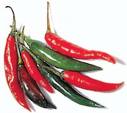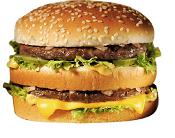|
The main risks in your lifestyle - the evidence

There are many features of a Western lifestyle that predispose you to having reflux disease.
Have an honest look at the ones below and see how many apply to you. It is changing your exposure to these as much as any tablets that will make the difference for your long-term health.
 Chocolate: It has been well known for over 30 years that chocolate reduces the pressure in the Lower Oesphageal Sphincter (LOS) and furthermore, this effect is not abolished by alkalinisation of the stomach. This lowering of LOS pressure has also been shown to lead to an increase in oesophageal exposure to refluxed acid for at least an hour after ingestion. Chocolate: It has been well known for over 30 years that chocolate reduces the pressure in the Lower Oesphageal Sphincter (LOS) and furthermore, this effect is not abolished by alkalinisation of the stomach. This lowering of LOS pressure has also been shown to lead to an increase in oesophageal exposure to refluxed acid for at least an hour after ingestion.

Onions: Not many studies have looked at onions specifically with in GORD but one study from Oklahoma specifically did. Volunteers with and without reflux were given a plain hamburger one day and a hamburger with onion on another day and patients with reflux experienced an increased number of reflux episodes, percentage of the time pH < 4, heartburn episodes and belches. Normal controls were unaffected.

Stress: It is a general perception that 'stress' makes reflux symptoms worse. It has been proposed that this is due, at least in part, to 'dysmotility'. In a study from Belfast in 1996 however it was shown that during both acute physical and psychological stress there were changes in motility only in patients with ERD, not in the group with NERD. A group from the Netherlands looked at a group of patients with ERD before and after endoscopically proven healing of their oesophagitis and found that both motility and oesophageal acid exposure (% time pH < 4, number of reflux episodes) did not change after healing of oesophagitis, thus implying that acid clearance remained unchanged. This suggests that impaired motility in reflux oesophagitis is either an irreversible consequence of oesophageal inflammation, or a pre-existing factor in its pathogenesis. Interestingly, individuals subjected to psychological stress report worse symptoms of heartburn but do not have an increased number of reflux episodes. This would account for the low response rates to traditional treatments that is observed.
Does removal/avoidance help?
Subjects who receive relaxation training have significantly lower reflux symptom scores and total oesophageal acid exposure times than subjects who do not. This suggests that whilst stress worsens symptom perception, its removal may help both this perception and reduce total reflux time. There are case reports of hynotherapy succesfully treating patient with functional heartburn (ie: normal endoscopy and pH studies).

Beer / alcohol:
There is actually remarkably little concrete evidence that alcohol is a cause of reflux despite this forming a part of many lifestyle advice sheets. It is known that patients who drink alcohol to excess have an increased risk of oesophageal cancer (for which reflux is the major risk factor). An excess of hard liquor especially predisposes patients with head and neck cancers to an oesophageal cancer. On the other hand a Japanese study suggested that the amount of alcohol, rather than the type, was more important is increasing the cancer risk.
There is some evidence that alcohol reduces lower oesophageal sphincter pressure and thus predisposes to reflux episodes. There is a direct effect as well as low alcohol doses accelerate gastric emptying, whereas high doses delay emptying and slow bowel motility.

Chillis: The active ingredient in chillis is called capsaicin. Depending on the type of chilli this is of variable perceived 'heat' and is measured by a subjective scale in what are calledScoville Heat Units. Again, not much literature exists that examines the effects of chilli on reflux. There is evidence that chronic ingestion of chillies can predispose to reflux and the severity depends in part on the type of chilli eaten.

Fast food: The rate at which food is eaten also influences reflux. A study from South Carolina demonstrated that in healthy volunteers the number of reflux episodes increased by 40% if they are a meal in 5 minutes as opposed to 30 minutes. This effect was observed in the first hour after the meal.

Large meals/fatty food:
There is strong evidence linking the development of GORD with obesity though it appears to be only an indirect risk factor for the development of Barrett's oesophagus.
An evidence based review of 100 articles by researchers in Stanford, CA suggested that weight loss appears to be beneficial in reducing both symptoms and pH profiles. This has been tested prospectively and even moderate amounts of weight loss can be very beneficial: a study from Derby, UK suggested that 5% weight loss can improve symptoms by up to 75%. This study was in subjects who were not obese (mean BMI 23). Other work has cast doubt on the effectiveness of weight loss in obese patients despite even impressive amounts of weight reduction. It may be that these patients are beyond 'the point of no return' and that despite fat loss their hiatus remians open and lax.
In an extraordinary study from Holland patients were treated for their reflux by weight loss but half of them had regular balloon distension of their stomach and this group did not get the same benefit in terms of reduction in reflux episodes - indeed these episode increased. Again, the amount of fat lost correlated with the improvement in symptoms. The implication of this study is that weight loss by smaller meals (less gastric distension) is far more preferable to weight loss which is achieved in the setting of large meals. This reinforces the idea of a wholesale change in lifestyle as a treatment for reflux.

In a recent case-control study it was shown that smoking increases the risk of reflux by 70%. This finding has been reproduced in other studies that also consistently show associations with many other lifestyle factors.
In another study of 24-hour pH monitoring in reflux patients from San Antonio it was shown that the time the oesophagus is exposed to acid increases by over 50% when smoking 20 cigarrettes a day. These events were mainly daytime ones and patients were twice as likely to experience symptoms after a reflux event. A group from Amsterdam showed that this reflux can affect both the upper and lower oesophagus. Cessation of smoking however takes a while to help: a study on smokers who gave up for a day showed the number of daily reflux episodes reduced but the total oesophageal exposure time did not change. Encouragingly, the use of nicotine patches as an aid to smoking cessation is not associated with any increase in reflux episodes.
Stopping smoking is not universally regarded as being helpful in terms of reflux symptom control. A review of 16 clinical trials looking at impact of lifestyle changes on reflux disease from Stanford suggested that there was no benefit in stopping smoking, though clearly there are well documented other benefits.
pH monitoring data confirm that smoking increases oesophageal acid exposure. Smoking reduces lower oesophageal sphincter (LOS) pressure and therefore predisposes to reflux. Consistent with this, smoking has been shown to cause an increased number of reflux events that are not attributable to increased transient LOS relaxations, but rather are associated with deep inspiration and coughing. Once reflux occurs, acid is cleared from the oesophagus firstly by oesophageal peristalsis and then by neutralization of the residual acid by swallowed saliva. Smoking prolongs acid clearance by decreasing salivation. The effects of smoking on LOS tone and acid clearance are most likely mainly due to nicotine but are incompletely understood.
There are of course many other non-reflux related reasons to quit smoking. |